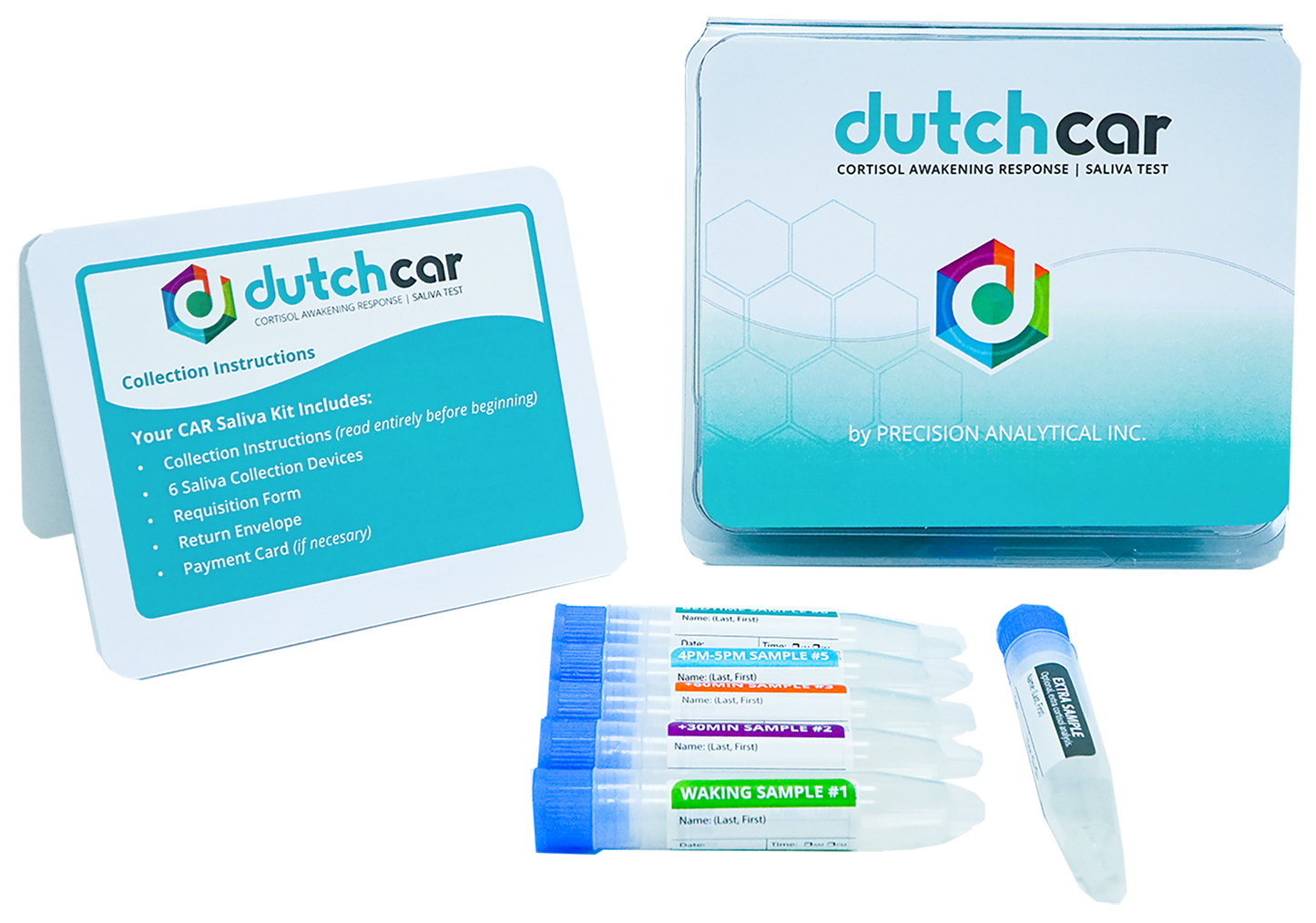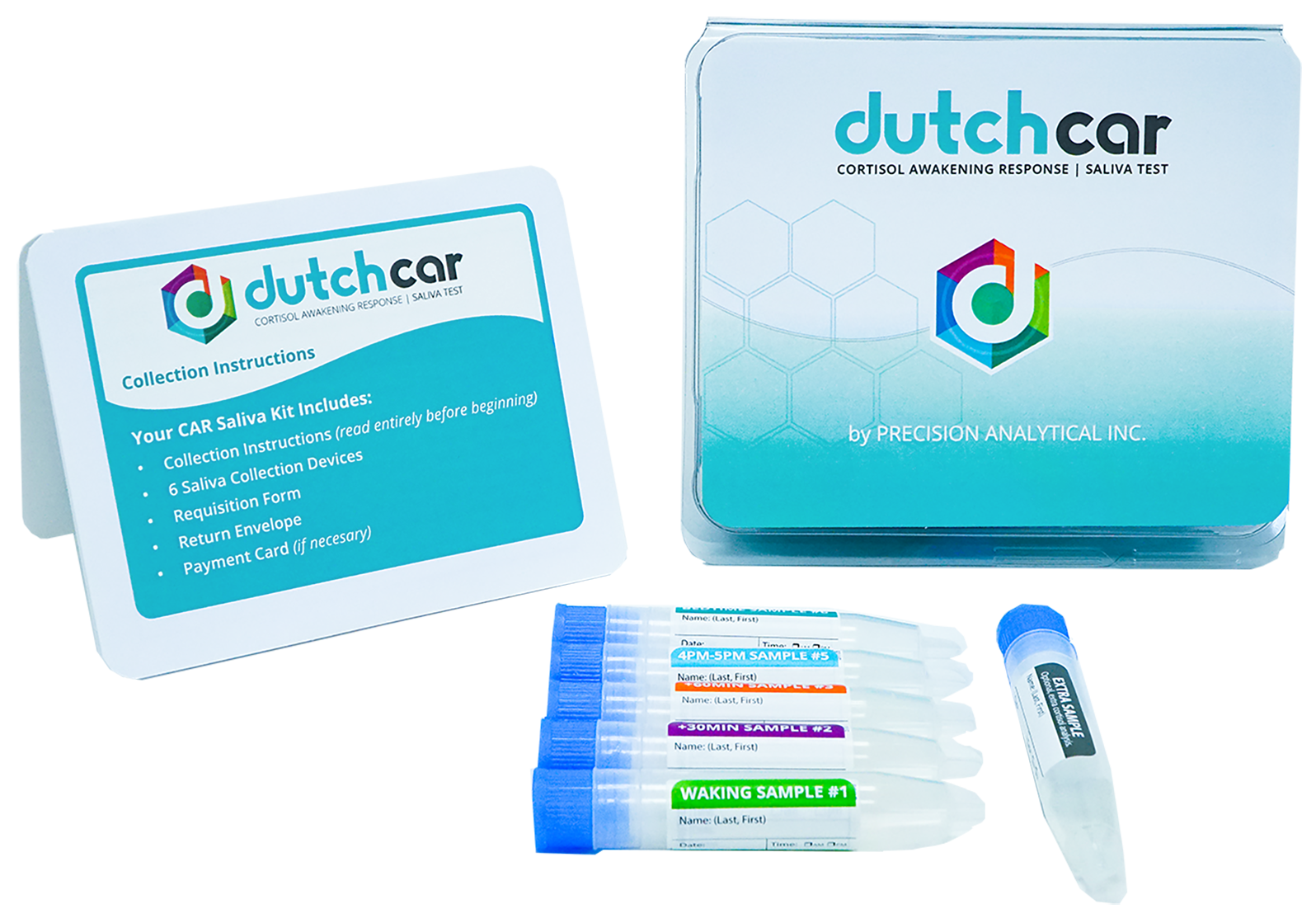Precision Analytical
DUTCH Cortisol Awakening Response (CAR)
DUTCH Cortisol Awakening Response (CAR)
Couldn't load pickup availability
DUTCH Cortisol Awakening Response (CAR) in New Zealand
What is the Cortisol Awakening Response and how do we test for it?
When we open our eyes upon waking, cortisol levels naturally begin to rise by an average of 50%. 30 minutes after waking, cortisol levels will still show this sharp increase. By 60 minutes after waking, cortisol levels have peaked and begin to decline. Measuring this rise and fall of cortisol levels at waking can be used as a “mini stress test”. Research shows that the size of this increase correlates with HPA-axis function, even if the sample measurements are all within range. A quick saturation of saliva swabs upon waking, and at 30 and 60 minutes after waking, provide what is required to assess a patient’s Cortisol Awakening Response.
A low or blunted Cortisol Awakening Response
This can be a result of an underactive HPA axis, excessive psychological burnout, seasonal affective disorder
(SAD), sleep apnea or poor sleep in general, PTSD, chronic fatigue and/or chronic pain. A decreased CAR has also been associated with systemic hypertension, functional GI diseases, postpartum depression, and autoimmune diseases.
An elevated Cortisol Awakening Response
This can be a result of an over-reactive HPA axis, ongoing job-related stress (anticipatory stress for the day), glycemic dysregulation, pain (i.e. waking with painful joints or a migraine), and general depression (not SAD). A recent study1 showed that neither the waking nor post-waking cortisol results correlated to Major Depressive Disorder, but the CAR calculation (the change between the first two samples) did. This measurement of the response to waking has independent clinical value showing dysfunction that may be hidden by current testing options.
Analytes:
Cortisol (5)
Cortisone (5)
*Saliva only, no urine collections required
Sampling Instructions for DUTCH Cortisol Awakening Response (CAR)
For technical support call: 0800-88-44-33
GENERAL DISCLAIMER
We recommend that you always seek the advice of a qualified health care practitioner regarding any medical or health related diagnosis or treatment before acting on this test information. Nutrisearch does not provide clinical advice on test selection or interpretation of testing for wellness testing to patients, nor does it provide diagnosis, treatment or medical advice. Nutrisearch is not liable to you or anyone else for any loss or negative consequence caused in whole or in part by interpreting, delivering or reporting information through the utilizing of laboratory testing services. In no event shall we be liable to you or any other party for any decisions made or action taken or not taken by you in reliance on such information.
Share


